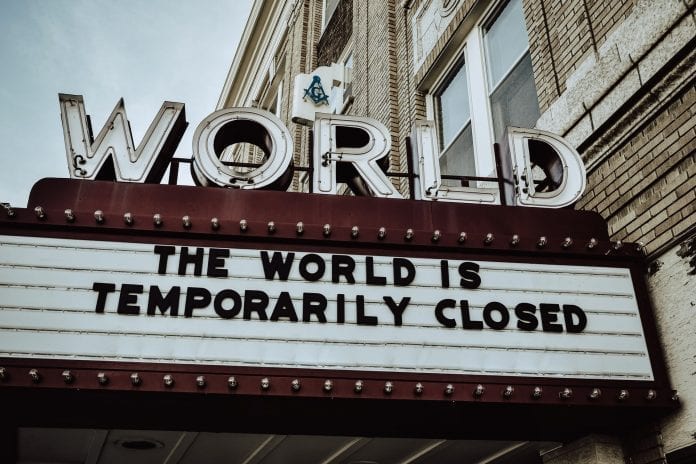
ICON_PLACEHOLDEREstimated reading time: 8 minutes
It’s the last month of the year. Meaning 2020 is packing its bags. Finally.
Everyone can narrate how this year is not exactly the best in recent times, thanks to the pandemic.
The business world is arguably the worst hit. Shops and businesses had to lock down as governments worldwide tried to curtail the spread of the virus.
And by the way, the pandemic did bless some people too. Jeff Bezos and a couple of other business tycoons somehow profited from the pandemic. Different strokes for different folks.
In Nigeria, Covid-19 was not the only factor that affected businesses. Of course, Covid did the most, but some other events influenced businesses in Nigeria in 2020.
So, let’s look at the 7 major events that significantly affected Nigerian businesses in 2020.
Contents
Covid19 Outbreak
It started as a rumour. Then gradually, it began to look real.
First, it was heard of far away in Asia, before we knew it, it was at our doorstep.
We had only seen something like it in movies, but it has been our reality for the past one year. Worldwide.
At the time of writing this, there are over 77.3 million cases of the virus worldwide, with over 1.7 million deaths—all within a year.
In Nigeria, more than 78,484 cases of covid have been recorded; 68,303 recoveries and 1,221 deaths. And even more scary is that we haven’t seen the last of it as the second wave of the virus appears to be imminent. So, keep staying safe.
Meanwhile, the resulting lockdown had a drastic effect on all businesses; micro, small, medium and major businesses. Some big companies, such as banks, had to let some employees go to cope with the lockdown effect. Others imposed pay cut. And some others were completely out of business and haven’t found their feet till now.
There was a restriction of movement due to the lockdown. As a result, even businesses that wished to continue operating couldn’t go to their places of work. Only those who could work remotely were able to continue. And that explains the massive profits made by the video conferencing business, Zoom, as profit went up to $185.7 million from about $5.5 million recorded in the same quarter of the previous year.
Though the Nigerian government claimed funds were made available to support businesses, 61% of respondents to a United Nations Fund for Population Activities (UNFPA) findings said they were unaware of such funds.
Most businesses in Nigeria will forever live to remember the 2020 pandemic as we all continue to stay optimistic that it doesn’t extend to next year, especially since a vaccine is now available.
‘Nationwide’ Endsars Protest
The Nigerian youths have never been silent about the rogue arm of the Nigerian Police known as Sars. Special Anti-Robbery Squad, Sars was formed in 1992 to combat armed robbery and other major crimes. And it was because armed robbers were terrorizing significant parts of Lagos and the entire south-west at the time.
But Sars have, over the years, metamorphosed into the same criminals they should be fighting. Many young Nigerians have reported extortion, robbery, brutalization and even cold-blood murder perpetrated by this arm of the Nigerian Police. Not to exonerate other police arms, but this particular unit tends to be taking the lead in all the vices.
Their targets are usually young Nigerians that appear to be well to do. They accuse them of internet fraud and other unfounded allegations and extort them to free them. When this doesn’t go as planned, they resort to force and brutalization, which sometimes results in fatality.
This ultimately led to the Endsars protest, following the killing of yet another innocent young Nigerian in Delta state. It was the last straw, and Nigerian youths had had enough.
The protest started in Lagos but soon spread to other states in the country. Young Nigerians came out in their number (there is no job anyways) to demand an end to the rogue police unit. Their message was simple and straightforward – #Endsars.
The protest meant roads were blocked, making it difficult for commuters. And commuters include employees who needed to be in the office, commercial drivers and their passengers, and dispatch riders. Again, businesses took a big hit. And that was just the beginning.
Soon, the protests were allegedly infiltrated by government-sponsored hoodlums, turning the peaceful protest violent. Police stations were attacked in most parts of the country; there was a prison break in Edo state and pockets of criminal activities in other parts of the country.
This led the Lagos state government to impose curfew in the state on October 20. That led the military to go “enforce” the curfew at one of the protest hotspots, Lekki Toll Gate. And there they shot at armless protesters who were waving flags and singing the national anthem, as seen on VJ Switch’s Instagram Live.
This was followed by what was almost a case of anarchy as shops were looted, innocent passersby were attacked, and goods worth millions of naira were lost. Shopping malls like Spar and Shoprite were not left out as they had to count their losses. Again, businesses were at the receiving end of most of the attacks.
Lagos Okada Ban
With effect from February 1, 2020, commercial motorcycles, widely known as okada, were banned from most parts of Lagos. The decision was met with anger and criticism from Lagos commuters, majorly because it seemed rushed and lacked major stakeholders’ consultation.
Guess who had to bear the consequences again – yeah, that’s right, businesses.
Okada has been the fastest way of moving around Lagos, thanks to the traffic that seems to keep getting worse. And then, Motorcycle hailing companies came to make the process even more comfortable with ride-hailing apps.
But all that soon became a thing of the past with the government’s ban on motorcycle in parts of the state. The result of that is more traffic on Lagos roads and people losing their means of livelihood.
While speaking to CNN, the late Gokada CEO, Fahim Saleh said the company had to halt the business’s transport aspect, laying off about 800 drivers.
“As a business, we kind of have to just roll with the punches, and a lot of those people that we had to lay off were very focused on the transport sector of the business”, Saleh added, summing up the effect of the ban on businesses in the transportation industry.
Stripe Acquires Paystack
Some good news, finally. Nigerian fintech company, Paystack, was acquired by US fintech giant, Stripe in a deal reportedly worth about $200 million.
The tech space in Nigeria received this news with cheers and jubilation as it’s an additional proof that tech is the future, and all hands need to be on deck to make the future now.
The news also served as an inspiration to more tech startups in the country.
And the news came in the hit of the Endsars protest, sending a strong message to the Police that young Nigerians could have a legit means of livelihood using their laptops and smartphone.
Cryptocurrency
It was a good year for cryptocurrency investors, especially Bitcoin.
The year started in January with the price of Bitcoin at about N2.6 million. Today, Bitcoin is worth about N11.4 million. Almost N9 million return on investment over the space of just 12 months.
That was for Bitcoin. And it was almost the same for other cryptocurrencies. Ethereum too opened the year at N48,000, and it’s currently at N280,000.
And it goes on like that.
This means more adoption of the digital currency in Nigeria. So, it came at no surprise that Nigeria is the second Bitcoin market in the world on Paxful, just behind the United States.
The CAMA Law
On Friday, August 7, President Buhari signed the Companies and Allied Matters bill into law after being passed by the National Assembly.
The bill had some effects on business registration in Nigeria, the major one being that businesses can now officially complete registration with the Corporate Affairs Commission (CAC) electronically.
Another significant change introduced by the new law is the single-member company. Before the law, the minimum number of persons required to set up a company was two. With the law, however, one person can solely set up a company.
You can read up more on the CAMA law and its implication on Nigerian businesses here.
Insecurity in Northern Nigeria
On Sunday, November 29, 43 farmers were reportedly slaughtered by Boko Haram members in Zambarmari, a community in Jere local government, Borno state. Residents of the community said 70 people were killed in total.
This was one of the many cases of insecurity in Nigeria. About 300 students of a secondary school in Kankara, still in Borno state, were recently kidnapped by bandits/Boko Haram. Though they have long been released, it still exemplifies the state of insecurity in the country.
The insecurity has taken a massive toll on businesses in the agriculture sector since most of Nigeria’s farm produce comes from the North which is also the stronghold of insurgency.
Prices of food have skyrocketed, as onions, for instance, now gets the gold comparison.
Conclusion
The good thing is you are still here to read this. As an individual or business owner, there are lessons to learn for everybody in 2020. What matters now is what you do with the lesson in 2021 and how you use it to your advantage.
Did I miss any major business-related event in 2020? Do let me know in the comments.
Winners and Losers of 2020: How to Financially Scale 2021
5 Must-read Marketing Books for Business Owners in Nigeria 2020
Top 10 Richest People in Nigeria 2020 and What you can Learn from them
























